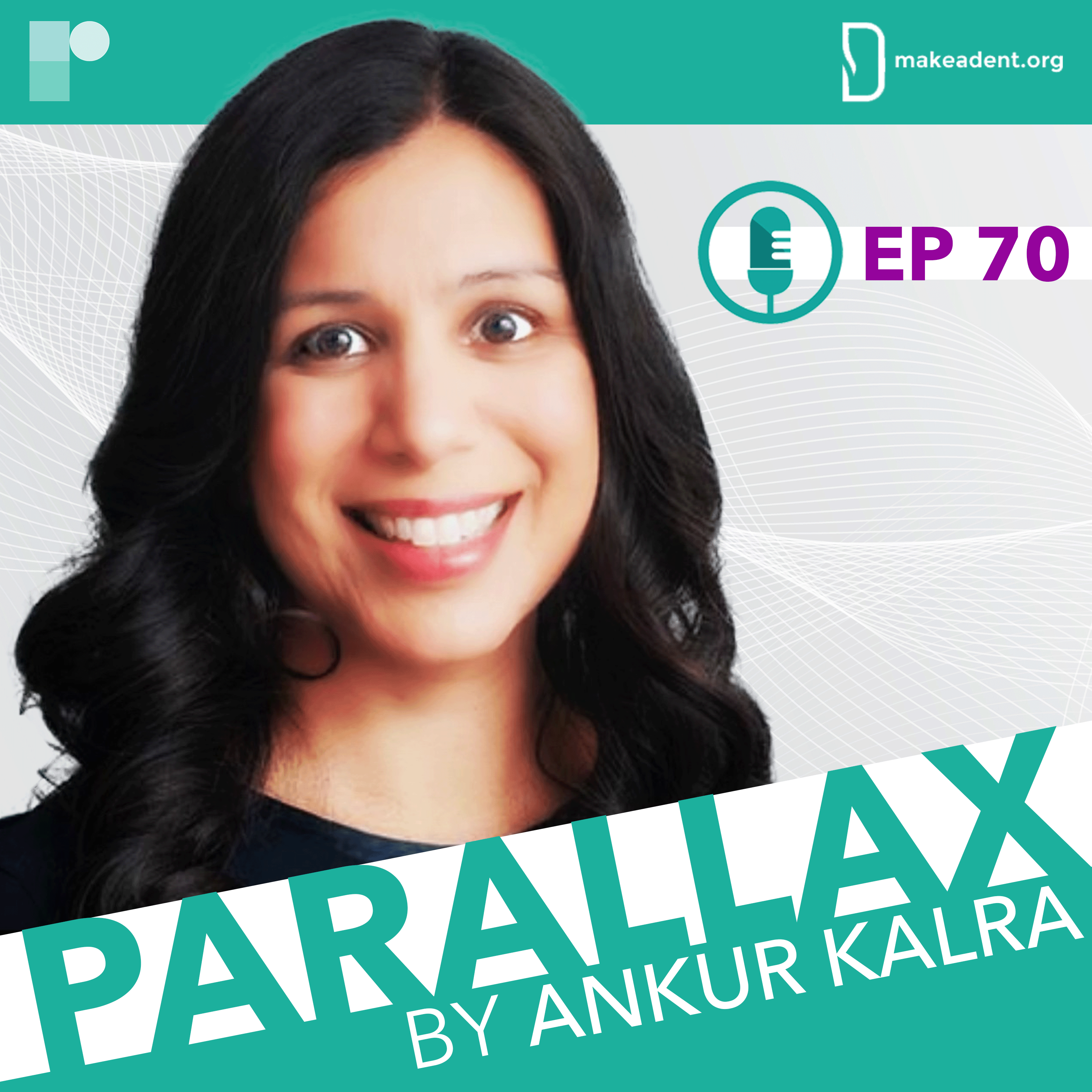
Years ago, Dr Bhatt, an early adopter of telemedicine, had difficult news for her patient that she wanted share with him in person. Her patient was resistant and they scheduled a video meeting. The patient asked Dr Bhatt to let him hear the news surrounded by his family in the safety of his home. Dr Bhatt learnt that she needed to listen to patients about how they want to be told things and how these interactions might effect them.
This week’s guest on Parallax is Dr Ami Bhatt, Chief Innovation Officer of ACC, Associate Professor at Harvard Medical School and Director of the ACHD program at Massachusetts.
In this engaging and in-depth episode, Dr Kalra and Dr Bhatt talk about the state of digital transformation today: They discuss the challenges and opportunities of telemedicine, artificial ‘collaborative’ intelligence and novel technologies that could enhance medical training. Dr Kalra asks Dr Bhatt about how she balances her responsibilities and her tips for approaching complex problems. Dr Bhatt also shares insights on the practicalities of her role as Chief Innovation Officer of ACC.
What is the next frontier in cardiovascular medicine? How can we best utilise available technology in medicine? What is Dr Bhatt’s advice to our audience?
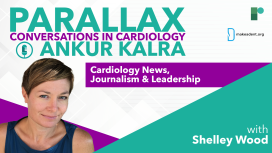



Tune in to discover the strategies that Dr. Kalra and Dr. Alasnag are currently employing and gain insights into how these data will shape their future decision-making in the catheterization laboratory. Don't miss this informative discussion at the forefront of interventional cardiology.

As we adapt to the changes brought about by the pandemic, Dr Singh outlines the necessary steps to foster a reality in which we can utilize these technologies to create more time for human connection.

Dr Owens is Medical Director of the Center for Inherited Cardiac Disease and Associate Professor of Medicine at the Hospital of the University of Pennsylvania.
This series is supported by an unrestricted educational grant from Bristol Myers Squibb. Please see www.camzyosrems.com for important safety information.
This content is intended for US-based physicians.
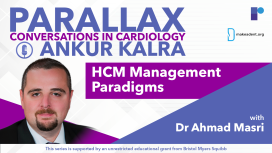
This series is supported by an unrestricted educational grant from Bristol Myers Squibb. Please see www.camzyosrems.com for important safety information.
This content is intended for US-based physicians.
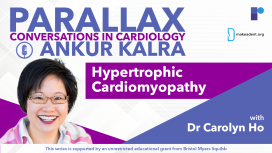
This series is supported by an unrestricted educational grant from Bristol Myers Squibb. Please see www.camzyosrems.com for important safety information.
This content is intended for US-based physicians.
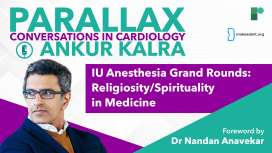
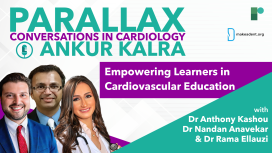


Parallax’s guest this week is Dr Eric David Adler, Medical director of heart transplant and mechanical circulatory support at UC San Diego Health.

How did Dr Gragossian receive her diagnosis? How does she feel about her new reality? What drives her? What is her message to our listeners?

Just after 9/11, Heval, the 18-year-old Syrian Kurdish refugee found a job as a dishwasher. At this point, he was the sole provider of his family. The pressure that comes from being poor did not leave him for many years. Today, he is firm believer in giving back to underserved communities by spreading awareness within the medical community. As he says, well-meaning people of privilege are sometimes afraid to act. What we need is more people to bridge the gap and find ways to help each other.

What drives Dr Nishtha Sodhi? What were the formative moments of Dr Sodhi’s career? What are the new frontiers of cardiology?






